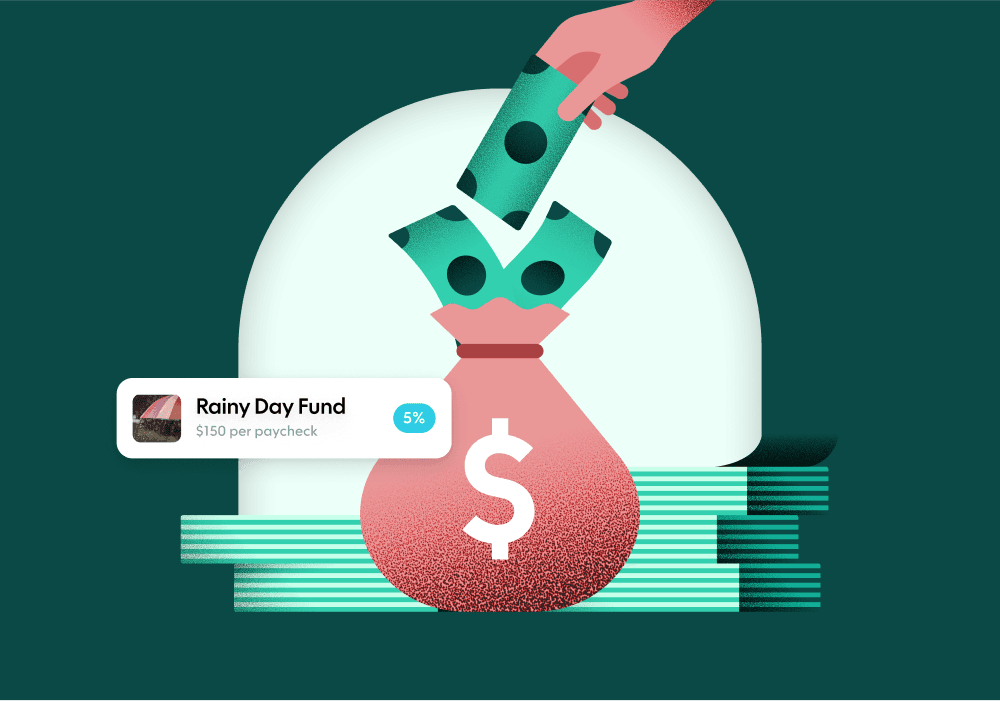What does rising inflation mean for me and my money?
●24 Aug, 2022

Inflation seems to be all anyone is talking about in the news. If you’re curious to know more about how inflation works and why it’s surging, check out our explainer.
But while the economists and financiers debate about the future of inflation, we’ve put together this guide to help you understand what impact it’s going to have on your life.
Everything just got more expensive
The heart of inflation is an inconvenient truth: prices just went up. Inflation doesn’t impact all prices uniformly or simultaneously, but it does trickle through the economy to touch just about everything.
At first, you can expect products like gas and groceries to go up, since these prices can change the fastest in response to supply and demand. Next, utilities like electricity, heating, and water will increase, since these often involve big organizations that closely monitor changes in the economy to create their prices. Finally, other products and services like restaurant prices and clothes may catch up to the rest.
Be careful with cash
When prices go up, your cash effectively becomes less valuable. If you’re keeping lots of cash sitting in a safe or a checking account, then that cash is depreciating relative to everything else because prices are going up by more than your bank balance.
However, that’s not a reason to move the cash around – keeping cash in rainy day and emergency funds is just as important, even in times of rising inflation. Inflation means that budgeting becomes tighter, so keeping an eye on your cash reserves becomes even more essential.
Think about loans
Since inflation hurts consumers, central banks like the Federal Reserve (“the Fed”) try to keep it under control. Their main strategy is raising interest rates. When they raise interest rates, the rest of the banking system follows suit.
That means that interest rates on credit like personal loans, mortgages, car loans, and student loans will increase in the near future. If you’re a borrower, then now is a good time to consider refinancing, since the cost of borrowing will soon increase – especially if you have an adjustable-rate mortgage. Locking in a lower fixed rate now can protect you against rate increases in the coming months.
Consider a chat with your boss
Companies will be increasing their prices in order to keep up with inflation and not lose profits, so you should also think about raising the “price” of your own work – a.k.a, raising your salary.
If your employer is paying you the same salary as last year while prices have gone up by 5%, then you are effectively making 5% less money for the same amount of work.
Salary negotiations can be tricky and every conversation is different, but it’s important to approach these conversations with self-confidence and data. After all, it’s up to you to defend your own “price” in the market, since we don’t all have agents to manage our salaries, like movie stars and athletes.
Your work performance and fulfillment should always be the basis of any discussion about a salary increase, but don’t forget to factor inflation into the calculation, too. Being objective helps. Find out how much prices have increased since your last raise (through something like the Consumer Price Index tool),¹ and use that increase as a starting point in your discussion. For example, if your employer agrees that you deserve a 5% merit raise based on taking greater responsibility and inflation increased by 5%, then the economically fair thing is a 10% raise to you.
How long will it last?
Governments and central banks are working to reduce inflation, but their tools and tactics take several months to have an impact. There’s no ironclad way to know, but many analysts estimate that inflation will continue at a high level through the rest of the year, and potentially into 2023. In the meantime, the best thing you can do is protect your money as much as possible.
Qapital, LLC is not a bank; banking services provided by Lincoln Savings Bank, Member FDIC, and other partner banks. Advisory services provided by Qapital Invest LLC, an SEC-registered investment advisor. The information provided herein is for informational and general educational purposes only and is not investment or financial advice. Copyright © 2022 Qapital, LLC - All rights reserved.
[1] CPI Inflation Calculator
Share